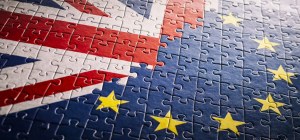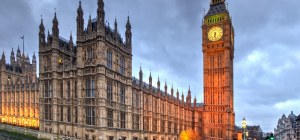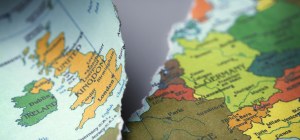52: Brexit – Hanging on in quiet desperation
It’s been another eventful week in Brexitland, following the publication last Thursday of the Government’s White Paper on ‘The Future Relationship between the United Kingdom and the European Union’.
Brexit means ‘a principled and practical Brexit’
The White Paper sets out the detail of what now constitutes the Government’s negotiating position. It accords with the ‘blueprint’ which was agreed at Chequers last week (discussed here), which led to the resignation of David Davis, Boris Johnson and others (because, in their view, it would tie the UK too closely to EU rules).
There is an excellent summary of the White Paper’s main provisions here (by the Institute for Government). It sets out the Government’s position and the extent to which it may be negotiable on the four key areas of the:
- economic partnership – goods, services, customs, the ‘level playing field’, freedom of movement, agriculture and fisheries, and the Irish border;
- security partnership – law enforcement cooperation and foreign policy, defence and development;
- cross-cutting and other cooperation – data protection and cooperative accords; and
- institutional arrangements – incorporation of EU rules, political governance, enforcement and dispute resolution.
What is particularly striking on reading the White Paper is the extent to which the UK government is straining to replicate, once it has left the EU, many of the benefits of EU membership through new bilateral agreements, even where this appears to contravene its ‘red lines’ of taking back control of money, borders and laws. This becomes particularly clear if the White Paper is read in terms of what the Government is seeking to achieve, rather than focusing on the (sometimes complex) mechanisms it is proposing to achieve it. The Government claims this is ‘principled and practical’, but critics say it is ‘Brexit in name only’.
So, the UK proposes that it will not automatically be subject to EU rules on products, state aid and environmental standards (as is required through EU membership), but it will substantially mirror those rules in order to facilitate free trade. Similarly, the UK wants a Facilitated Customs Arrangement – in order to remove the need for customs checks and controls – ‘as if’ the UK and EU were a combined customs territory, but without being in the Customs Union (necessitating a ‘tariff revenue formula’ in order to ‘settle up’ afterwards). Or the UK doesn’t want to be subject to the jurisdiction of the CJEU, but it will allow the CJEU to interpret EU law, which interpretation will be binding in any dispute resolution.
It all reads a bit like cancelling your gym membership but then trying to find ways to carry on using your favourite bits of apparatus.
More political fallout at Westminster
This has led both hard Brexiteers and Remainers to ask this week: ‘If that’s what we’re achieving, what’s the point of Brexit?’
Brexiteers see the Government’s policy as a failure to ‘grasp the nettle’ of unshackling from the UK’s current economic relationship with the EU (see Boris Johnson’s resignation speech), and suspect the PM’s lukewarm enthusiasm for Brexit.
To put pressure on the PM, the ERG (the Brexiteer group within the Tories) proposed on Monday certain amendments to the Customs Bill to:
- stop the UK from collecting tariffs for the EU, unless the EU Member States reciprocate by collected UK tariffs;
- make the EU’s ‘backstop’ on customs impossible by ruling out a border in the Irish Sea;
- ensure the UK was out of the EU’s VAT regime; and
- require new legislation if the Government wanted to form a customs union with the EU.
After a meeting between the PM and the ERG’s Jacob Rees Mogg MP, the Government accepted these amendments as ‘compatible’ with the White Paper, even though many MPs thought they were incompatible – particularly the first one, which appears to contradict para. 17 of the White Paper, which states:
‘… the UK is not proposing that the EU applies the UK’s tariffs and trade policy at its border for goods intended for the UK.’
That led to furious exchanges in the Commons, and Tory Remainers voting against the Government, but on the basis that they were defending the Government’s own policy. The Government won, although only by four votes (and Lib Dems Vince Cable and Tim Farron were inexplicably absent from the Chamber).
Then, on Tuesday, the Government lost a vote on the Trade Bill, with the Commons agreeing to protect links between the UK and the European Medicines Agency (EMA) to ensure the smooth flow of medicines and new drugs for British patients after Brexit. This wasn’t a disaster for the Government – paragraph 30 of the White Paper states that the Government’s policy is to seek ‘participation in’ the EMA – but it does indicate the Commons’ lack of appetite for ‘regulatory decoupling’ on vote-sensitive matters like access to medicines.
Of greater long-term significance, however, was the Government’s defeat of ex-Minister Stephen Hammond’s amendment which would have required the Government to negotiate to keep the UK in a (not the) customs union, if the Government failed to negotiate a future relationship along ‘White Paper’ lines. It has long been ‘received wisdom’ that the majority of MPs would favour remaining in a customs union, in order to protect the economy. When that issue finally came to a vote, the Government scraped through by six votes, with the support of the DUP and, crucially, four Labour Leavers, and despite a dozen Tories rebelling.
But media reports indicate the Government whips were pushed to extreme measures to secure the win, warning Tory MPs that a Government defeat would lead to a vote of confidence in the prime minister, and could cause a general election (ie they played the ‘Anyone But Corbyn’ card), and failing to honour conventional ‘pairing arrangements‘ with Opposition MPs who were unavoidably away from the Chamber. The PM is hanging in there, but only just.
Negotiations with the EU
The White Paper may form a basis for negotiations, but it also makes clear how much negotiation remains to be done. Many of the mechanisms to achieve the new UK-EU relationship the Government is proposing are precisely that – mere ‘proposals’. New SSExEU Dominic Raab promised ‘vim and vigour’ at his first meeting with Michel Barnier in Brussels, but little substantive progress has been made on the outstanding issues in the Withdrawal Agreement in the last few months, never mind starting on the future relationship.
Much may turn on whether the EU can be persuaded that the UK’s proposal can be seen as a ‘Canada plus plus’ agreement (ie a free trade agreement ‘with knobs on’, which is acceptable on the basis of the existing regulatory alignment between the UK and the EU27) or if it will continue to characterise such a deal as an anathema to the indivisibility of the ‘four freedoms’ – of goods, services, capital and labour.
On the former, agreement over the Irish border is crucial. The ‘backstop’ arrangement reached last December was that, if no specific solution was found through the UK-EU trade relationship, there would be:
‘full alignment with those rules of the Internal Market and the Customs Union which, now or in the future, support North-South cooperation, the all-island economy and the protection of the 1998 Agreement’
in other words, to avoid a hard Irish border, Northern Ireland would stay within the customs union and in regulatory alignment with the EU. Theresa May, speaking in Northern Ireland on Friday, reiterated the UK’s opposition to the backstop in the strongest terms (notwithstanding it is something the UK agreed to):
‘The economic and constitutional dislocation of a formal ‘third country’ customs border within our own country is something I will never accept and believe no British prime minister could ever accept… What I’ve said to the EU is that the legal text they’ve produced is not acceptable, that’s why we proposed an alternative to that.’
The failure to reach agreement on these longstanding questions is why the UK and EU have both stepped up preparations this week for a ‘no deal’ Brexit. Time is getting ever shorter.











